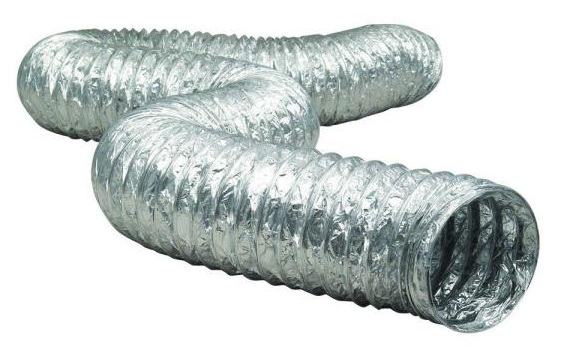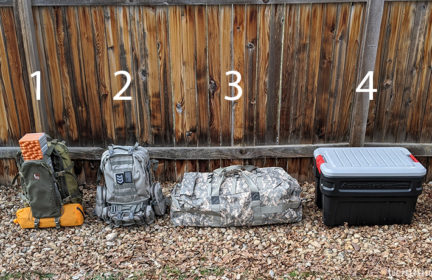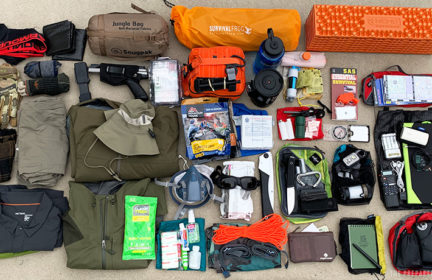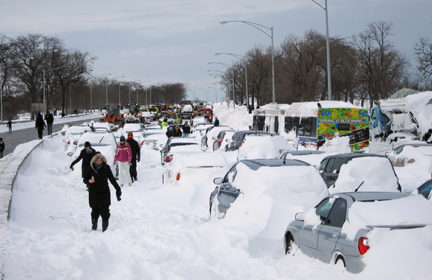Get home bag for harsh winter conditions
Hello! I am relatively new to prepping and I am starting to put together a “get home” bag and was hoping for some suggestions and advice. I live in a rural area in the northeast with very cold and harsh winters and I have a 45 minute commute to work each way. If something happened and I had to make it back home on foot in the winter, or if I had to survive the night in my car due to severe winter weather, what would you recommend I have in my get home bag? Thanks in advance for your help!
-
Best Replies
Bradical Bradical - November 30, 2020
LNMOt, I see you made this post about 4 weeks ago, I would love to hear an update if you have made your get home bag since then and what you put in it.
With you specific situation, I would break it down into two possible scenarios.
Scenario #1: You have to bunker down in your car for a night, but the roads are probably going to open up again the next day and you can drive home. In this scenario I would always make sure your gas tank is at least 1/2 full so you have enough fuel to run your car’s heater if you need to. Maybe a small gas can in the trunk too. Definitely a good sleeping bag, probably rated at 0 degrees. In scouts we used to buy a painters drop cloth and wrap that around our sleeping bag to make it more water resistant to any snow, and also to keep the warmth with the nonbreathable material of the drop cloth. I’ve seen these electric hand warmers recently, I don’t know if they work well or not, but that can be a source of warmth that could be used in a car without risking carbon monoxide poisoning or fire, especially if you pair it with a small solar panel to keep it charged. And then your normal get home bag gear such as food, water, etc… Those car jump starters can also be a good prep to have as cold weather can kill batteries, and other people might not be up to leaving their warm car to help jump start you when a blizzard is happening. This one is cool because it can jump start your car, has an air compressor to puff up flat tires, can charge USB (charge your phone and electric hand warmer) and cigarette lighter devices, and has a light built in.
Scenario #2: You need to abandon your car and hike it home. This will add another level of prepping. A one man winter tent will probably be needed, as I doubt you can walk that whole distance in one day and will probably have to sleep out in the snow and cold for multiple days. You will need to pack some good snow boots, multiple pairs of warm wool socks, and a change of winter clothes. Warm snow gloves, scarf, beanie, and thermal underwear will be good things to pack too. I would also bring just a normal hiking boot as well. If you go through an area like a road that isn’t snow packed, and you don’t need to wear your big heavy snow boots, a pair of hiking boots could be better as they will be more conducive to hiking. Unlike big snow boots that are mostly designed just to keep your feet dry and warm.
Keep an eye this winter about which roads are well maintained and snow is removed first, and plan out possible routes if this were to ever happen to you.
-
Comments (9)
-
RedneckContributor - November 6, 2020
My commute is around 30 minutes and I live in Mississippi, so the winter isn’t as much an issue for me as for you. However, since being stationed in North Dakoda in my youth, I am familiar with dealing with cold weather. As opposed to having a winter bag & a summer bag, I suggest always wearing, or have in your vehicle the proper winter clothes. I only wear my hiking boots so I don’t have to store other footwear in my truck. I also always have a knife in my pocket and if cool I wear a lightweight rain jacket. Basically, I wear to work what I can easily hike home in. That is an advantage over someone who has to dress up for work.
Here is some of what I keep in my get home bag:
Sawyer Mini water filter, Goal Zero Torch 250 light, Gerber Bear Grylls fire starter with petroleum jelly cotton balls in storage compartment, Solo Stove Pot, Israeli Bandage, CAT Combat Application Tourniquet – GEN 7, paracord, metal water bottle, Mayday food bars, 2 Mountain House freeze dried meals & bug repellant.
Here is a short video on the stove pot:
-
Sorcer Gamble - November 25, 2020
My wife is getting a Get Home Bag for x-mas. Still working on it but thus far it has;
– aspirin, tums, triple antibiotic ointment, etc.
– fingernail clipper, tweezer (for slivers & thorns)
– winter gloves, hat, scarf, extra socks
– toilet paper
– a couple 40 oz containers of water filled 4/5 full so they survive freezing left in the car
– a 2400 calorie food bar 5 year shelf life
– stainless steel companion mora knife
– umbrella and poncho
– emergency blanket
Probably also going to add a bic lighter in a ziplock, mosquito head net, some cash, and battery powered phone charger. I would have a significantly different list of things in my own Get Home Bag, but these things seemed appropriate for the wifey.
-
Gideon ParkerStaff - November 26, 2020
Something that I have seen others do, but I’ve never done is making a toilet paper paint can heater. https://youtu.be/oXXeWY8EXIs
This could be good for your car kit.
-
Sorcer Gamble - November 26, 2020
I would consider doing that with denatured clean burning alcohol. Isopropyl burns very sooty black smoke. Would also like to know how long something like that would burn. Something like a piece of tile would be good underneath as well as that can would get crazy hot.
-
-
Bradical - November 30, 2020
LNMOt, I see you made this post about 4 weeks ago, I would love to hear an update if you have made your get home bag since then and what you put in it.
With you specific situation, I would break it down into two possible scenarios.
Scenario #1: You have to bunker down in your car for a night, but the roads are probably going to open up again the next day and you can drive home. In this scenario I would always make sure your gas tank is at least 1/2 full so you have enough fuel to run your car’s heater if you need to. Maybe a small gas can in the trunk too. Definitely a good sleeping bag, probably rated at 0 degrees. In scouts we used to buy a painters drop cloth and wrap that around our sleeping bag to make it more water resistant to any snow, and also to keep the warmth with the nonbreathable material of the drop cloth. I’ve seen these electric hand warmers recently, I don’t know if they work well or not, but that can be a source of warmth that could be used in a car without risking carbon monoxide poisoning or fire, especially if you pair it with a small solar panel to keep it charged. And then your normal get home bag gear such as food, water, etc… Those car jump starters can also be a good prep to have as cold weather can kill batteries, and other people might not be up to leaving their warm car to help jump start you when a blizzard is happening. This one is cool because it can jump start your car, has an air compressor to puff up flat tires, can charge USB (charge your phone and electric hand warmer) and cigarette lighter devices, and has a light built in.
Scenario #2: You need to abandon your car and hike it home. This will add another level of prepping. A one man winter tent will probably be needed, as I doubt you can walk that whole distance in one day and will probably have to sleep out in the snow and cold for multiple days. You will need to pack some good snow boots, multiple pairs of warm wool socks, and a change of winter clothes. Warm snow gloves, scarf, beanie, and thermal underwear will be good things to pack too. I would also bring just a normal hiking boot as well. If you go through an area like a road that isn’t snow packed, and you don’t need to wear your big heavy snow boots, a pair of hiking boots could be better as they will be more conducive to hiking. Unlike big snow boots that are mostly designed just to keep your feet dry and warm.
Keep an eye this winter about which roads are well maintained and snow is removed first, and plan out possible routes if this were to ever happen to you.
-
Steveale - December 4, 2020
You probably want to think about getting home without a car, your choice of items may change. Also, you may want to do a “practice run or two” in good weather. My commute used to be 33 miles which was about 55 mins. I had a fam member drop me off a weekend morning and I walked home and it included an overnight sleep. For that reason I have a small profile hammock tent (hangs between trees) in my bag. Fortunately I am now at my retreat full time.
-
Scott P - December 9, 2020
Hi, I also live in the northeast and here are some of my thoughts. Firstly I want to do everything I can to use my car to get home, so having a good selection of tools to do that helps. So in addition to standard car repair kit and a spare tire I have good jumper cables, a snow shovel, sand and a large folding frame saw. A small axe wouldn’t be a bad idea, considering the ice storms and heavy snow bringing down trees in the road, being able to clear that out helps a ton.
Next I keep a fairly generic wilderness survival setup in the car in a cook pot. That is fairly small and easy to travel with. But it is the sort of thing that you have to practice with to make it useful, otherwise you might want some more gear. The one I have is actually made by ESEE, with a few small extras I threw in. I also have a large knife and a 3 day food bar.
I am lucky that most of my travel in bad weather is to recreate outside, so I also usually have all that extra clothing and gear. Most notably is usually some sort of way to move over snow, either back country skis or snowshoes. Now instead of that you can practice making a Roycroft ski shoe, but you will want to make sure you have a few items like some lamp wick and extra cordage in your kit to make that work as effectively as possible.
An extra wool blanket or sleeping bag isn’t a bad idea as well. Also dress for the weather not the drive will also help a ton. Hope that you find something useful in this.
-
hikermor - December 13, 2020
Just one caution – don’t run you engine or car heater for warmth if you are stopped. people have died doing this due to carbon monoxide seeping into the vehicle. You are much better with a good sleeping bag or adequate blankets. I once worked in a similar situation and a always kept a warm bag in the vehicle, along with a canteen, tea or coffee, stove, and chow.
-
Conrad B - December 14, 2020
Thank you for bringing that up. I do not want to die of carbon monoxide poisoning!
hikermor, what do you think about having a piece of furnace duct in your car during the winter? That way if you were forced to bunker down in your vehicle during a blizzard, you could attach this to your tailpipe and get the exhaust further away from your vehicle.
-
-
- News of the Week 2024-12-30 - 2 weeks ago
- (Official discussion) Rainy day funds and cash on hand - 4 weeks ago
- News for the Week 2024-11-18 - 4 weeks ago
- How to sew and repair a leather glove - 2 months ago
- Moooooooo…Can you rec a powdered milk? - 2 months ago
This forum is heavily moderated to keep things valuable to as many people as possible. Full community policies are here. The basics:
- 1. Be nice to each other.
- 2. Stay focused on prepping.
- 3. Avoid politics, religion, and other arguments.
- 4. No unfounded conspiracies, fake news, etc.
- 5. Debate ideas, not people.



